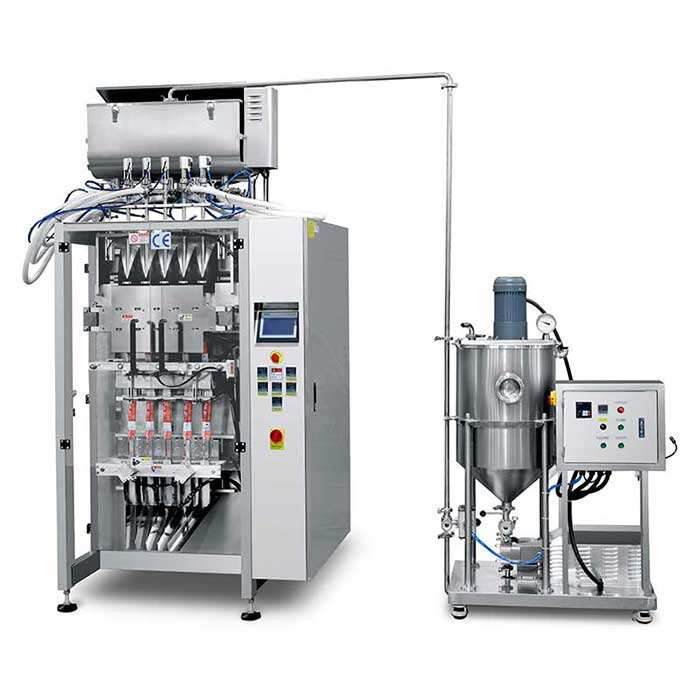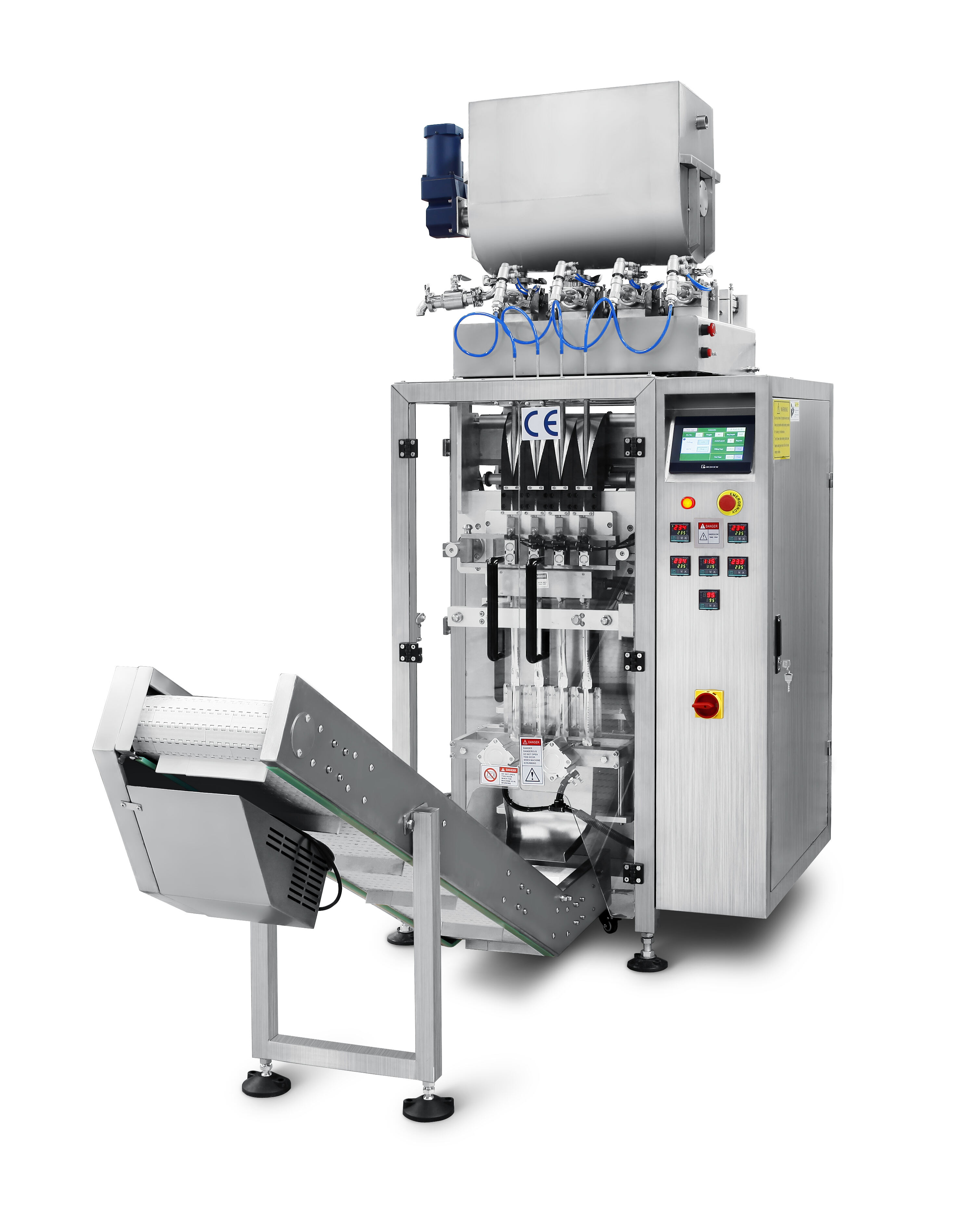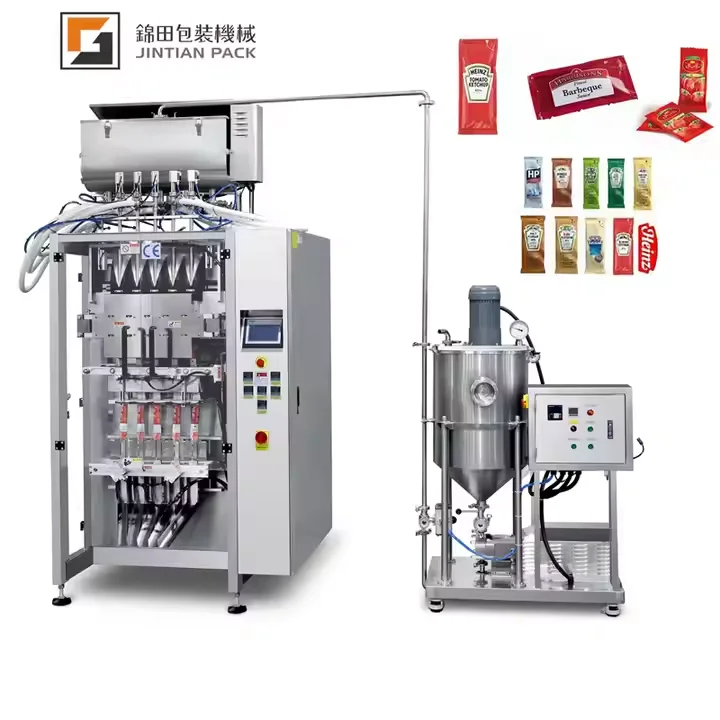Balancing speed and accuracy in liquid packaging is paramount to successfully deliver quality products without delays. The need for high-speed packaging often creates operational bottlenecks where the focus on speed might compromise the accuracy and quality of the packaging processes. Key bottlenecks include misaligned labels and incorrect fill levels, which can affect consumer satisfaction and lead to increased product loss. Statistics show that accuracy in liquid packaging is critical; a 1% error rate in packaging can result in significant product losses and negatively impact consumer trust and brand reputation. Therefore, manufacturers must implement systems that ensure both swift operations and precise results, leveraging strategies like automation to maintain this balance.
Selecting material compatible with the beverage type is crucial to ensuring packaging integrity and preventing leaks. Different beverages require specific packaging materials to maintain freshness, flavor, and safety. Employing strategies such as hermetic sealing and double-checking packaging seals during transit can effectively mitigate leaks and product degradation. A study highlighted that material failures account for about 20% of product recalls in the beverage industry, underscoring the importance of using suitable packaging materials. By prioritizing material compatibility and employing comprehensive leak prevention strategies, manufacturers can minimize risks and uphold product quality throughout the supply chain.
Automation has transformed food packaging machines, drastically reducing human error and enhancing operational efficiency. Innovations in automated systems have propelled packaging processes to new heights by streamlining tasks and minimizing the need for manual intervention. According to a 2023 report by McDowell, automation has increased packaging speed by up to 40%, leading to significant cost savings. Today, automated systems, such as robotic arms, are widely used in the beverage industry for tasks like capping bottles and arranging packaged goods, ensuring consistent quality and precise execution. As the industry continues to adopt such technologies, the focus remains on improving output while cutting down on labor costs.
Smart sensors have revolutionized the precision and accuracy of filling machines, setting new industry standards. Through real-time monitoring and adjustments, these sensors ensure that each package receives the exact amount of liquid, reducing waste and enhancing product consistency. Technological advancements allow for sophisticated data analysis, identifying trends and anomalies to fine-tune operations further. Recent statistics indicate a 25% improvement in filling accuracy using these smart sensors, underscoring their efficacy. As these technologies evolve, they promise even greater precision in packaging processes, fostering reliability and increased consumer trust in food packaging methods.
The liquid multi-column packaging machine is engineered to deliver high-speed versatility in packaging operations. This machine excels in demanding environments where efficiency and speed are paramount due to its advanced technology and multifunctional capabilities. It efficiently handles various products, such as sauces, honey, and other liquids. The industry's standards for speed and versatility dictate that machines like these offer precise, simple operation, and low energy consumption—all while meeting diverse packaging requirements. For instance, in fast-paced manufacturing settings, the liquid multi-column packaging machine ensures optimal performance across different types of materials, thus boosting productivity and consistency.

The JT-420-4K stick pack machine stands out for its specific adaptation to handle viscous liquids such as honey, ketchup, and jam. This machine is designed to enhance productivity, especially in stick pack formats, offering reliable, efficient, and durable operations. Its advanced technological features, including servo motor control for film pulling and PID temperature control, ensure precise and consistent packaging outcomes. Companies adopting this technology have reported significant improvements in production efficiency, as evidenced by their enhanced throughput and cost savings.

The vertical form-fill-seal (VFFS) system is instrumental in optimizing sachet packaging processes with its significant efficiency advantages. This system provides versatility, adapting to diverse product types ranging from liquid food items to non-food applications. By integrating functions such as bag making, measuring, filling, and sealing into a single operation, VFFS machines streamline processes and reduce manual errors. Market research indicates growing demand for sachet packaging solutions, driving the technology's advancement in response to consumer preferences for convenient and sustainable packaging options.

Advanced food bagging machines play a crucial role in reducing waste in the beverage production industry. By efficiently packaging products, these machines help minimize the use of packaging materials while ensuring the integrity of the packaging. Innovative features like precision weighing and material optimization reduce excess packaging material usage, addressing the issue of waste head-on. Studies in the environmental sector have shown significant waste reduction when modern packaging machines are implemented, contributing to more sustainable practices in the beverage industry.
Energy efficiency is paramount for reducing the carbon footprint of packaging operations. Modern packaging systems incorporate cutting-edge technologies that enhance energy-efficient operation. These systems utilize intelligent design and automation to minimize energy consumption without compromising performance. Industry reports confirm that such advancements have led to considerable energy savings, supporting the transition towards greener packaging solutions. Embracing these technologies not only aids in sustainability goals but also delivers cost benefits through reduced energy usage.
Artificial Intelligence is revolutionizing quality control in beverage packaging by enhancing precision and reliability. With AI-driven systems, manufacturers can significantly reduce human error, ensuring consistent quality across all production lines. These systems automate the identification and rectification of packaging flaws, thereby improving overall efficiency. The implementation of AI in packaging facilitates rapid decision-making processes, leading to fewer disruptions in the manufacturing workflow.
The benefits of AI in packaging extend beyond error reduction; they also include increased productivity and reduced operational costs. By automating routine tasks, AI minimizes manual interventions, allowing for a smoother, faster production cycle. Current market trends indicate a growing adoption of AI technologies, projecting a substantial increase in the integration of AI systems within the packaging industry. This technological shift is poised to redefine standards in quality control, setting new benchmarks for consistency and excellence.
The trend towards customizable sachet packaging solutions marks a significant evolution in consumer demand and packaging design. Consumers increasingly seek personalized packaging that reflects their individual preferences, creating a robust demand for customizable options. This shift influences how companies approach packaging design, prioritizing versatility and consumer engagement.
Customization allows brands to differentiate themselves in a competitive market, with designs tailored to fit specific consumer needs. This demand for personalization is driving innovation, leading to dynamic, adaptive packaging solutions that cater to a variety of product specifications. Industry statistics support this trend, with significant growth observed in the adoption of customizable sachet packaging configurations. As more industries embrace these solutions, the influence on packaging design is likely to continue expanding, enabling brands to forge stronger connections with their audience and remain competitive in the ever-evolving market landscape.